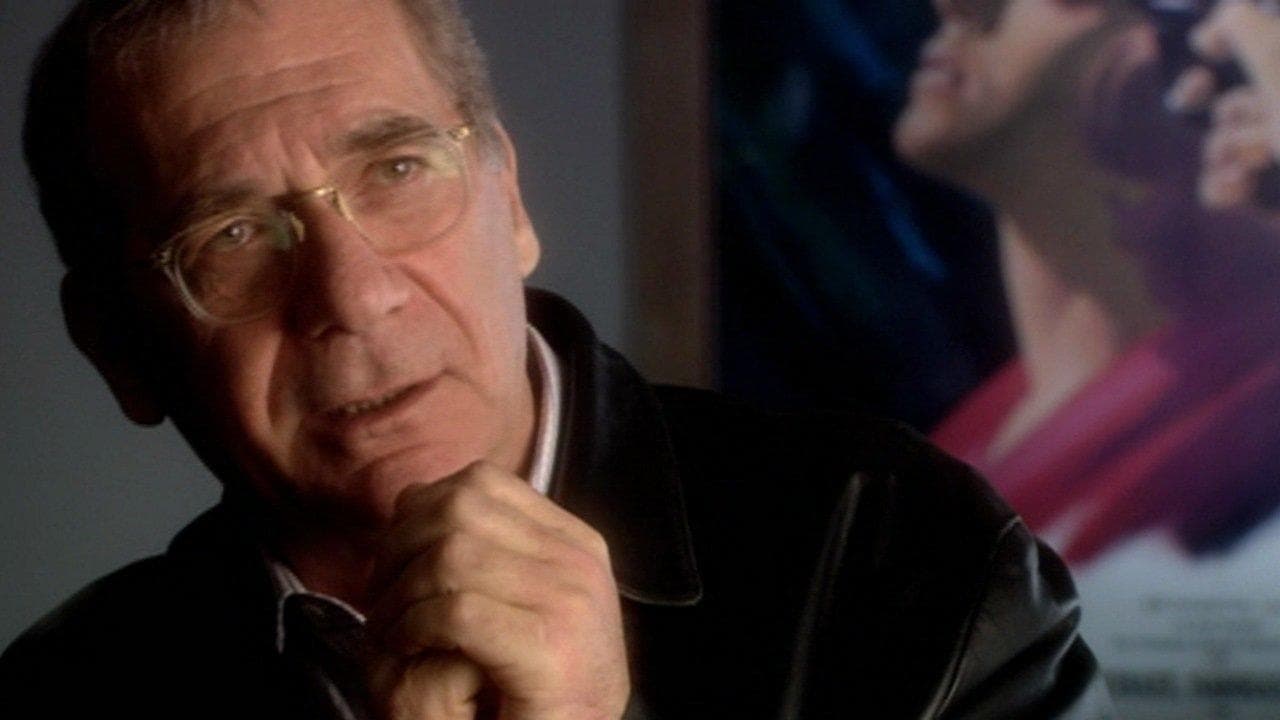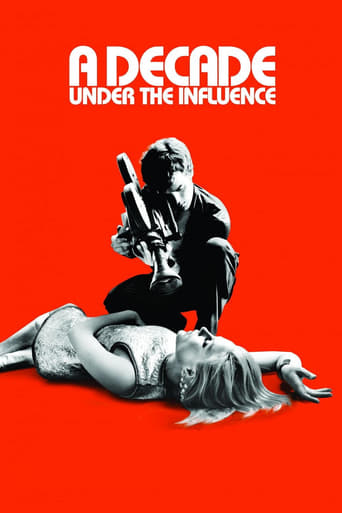Solidrariol
Am I Missing Something?
Freaktana
A Major Disappointment
Yash Wade
Close shines in drama with strong language, adult themes.
Ezmae Chang
This is a small, humorous movie in some ways, but it has a huge heart. What a nice experience.
Sean Ramsdell
Pros: Great interviews, tons of clips, "Apricot Brandy" (the film's theme song), got some films on DVD/Blu-Ray (The Conversation, Being There, American Graffiti).Cons: 70's cinema can be over-celebrated as noted on an excellent LA Times article by Manohla Dargis (http://articles.latimes.com/2003/aug/17/entertainment/ca- dargis17).
Ali Catterall
This exploration of a unique decade in US cinema begins with the fall of one ailing, out-of-touch empire and culminates with the unstoppable rise of another, equally associated with escapism and box office receipts. Meet the new boss, same as the old boss. Or, as Peter Fonda observed in Easy Rider, "We blew it." In between, from Bonnie And Clyde to Star Wars, the young Turks (some under the guerrilla tutelage of Roger Corman) were creeping under the wires to produce some of the greatest artworks of the 20th century. While the story is already familiar from Peter Biskind's Easy Riders, Raging Bulls directors Demme and LaGravenese are less concerned with muckraking than in providing a platform for the filmmakers and stars themselves.Everyone from Martin Scorsese to Francis Ford Coppola and Julie Christie is interviewed and a roster of well edited clips places the decade in a socio-cultural and economic context. If their responses are self-congratulatory (to say the least), they're also highly quotable, funny and revealing, making this something of a cinephile's wet dream. Director William Friedkin reveals how the original The Exorcist poster was to feature a little girl's hand holding a bloodied crucifix and the legend 'For God's sake, help her", before he complained. Former Warner Bros.' head John Calley recalls that when he first saw Robert De Niro in Mean Streets he assumed Scorsese had secured a psychopath's day release for the shoot.Happily, a certain amount of hard perspective has crept into the mix, as might be hoped from a politically motivated, consciousness-expanded generation; Hopper stresses "there's a lot of real crap in there too". Julie Christie observes that 1970s US cinema was "not a good time for women". But if Demme responds with a spoonful of sops to women's movies - brief clips of Alice Doesn't Live Here Anymore, They Shoot Horses, Don't They and Klute - we're soon dragged back to the usual male wall-pissing contests.The shift from tough, socially-conscious film-making to no-risk crowd-pleasers like Jaws for 'Nam-weary, fantasy-craving audiences is also documented, though a little rushed. But kudos too, for the inclusion of lesser-sung, but equally relevant films like Panic In Needle Park and Joe. "We weren't handsome," muses Bruce Dern on his contemporaries. "But we were f****** interesting."
ShootingShark
A documentary dealing with American films made in the nineteen-seventies, with major emphasis on experimentation with new styles of cinematic expression and departure from the traditional style of film production.It's tough to generalise, but I think the seventies is my favourite decade of film. This is a quality documentary about that period, which correctly identifies my reasons for feeling that way - the waning big studios giving rise to the auteur, non-prohibitive costs and the first "movie-brat" generation of film school graduates. However, it then turns into an all too predictable film critics' textbook examining how cinema reflected the social upheaval of the period and champions the usual directors - Altman, Hal Ashby, Bogdanovich, Coppola, Pollack, Scorsese and so on - and their de-Hollywoodised, European-influenced approach. It even goes so far as to hint that the huge successes of Steven Spielberg and George Lucas (who had the temerity to make imaginative, exciting, crowd-pleasing genre pictures) killed artistic creativity and put the studios back on top, a suggestion which pisses me off to no end. Everybody has different tastes - I love Coppola and I can't stand Altman - but I find it ironic that although the films discussed and the interviewees are almost always championing anti-establishment stances, by doing so the documentary is virtually a propaganda film for cinema's Critical Establishment. Some of the comments are spot-on (Dern's analysis of the difference between his acting generation and the preceding one, Schrader's synopsis of the big studios' transition from factories to banks), some are wildly inaccurate (MASH was not the first film to treat war as comedy by a long chalk), but all are interesting and almost all the talking heads are witty and erudite, particularly Corman, Friedkin, Grier, Lumet, Mazursky and Platt. At the end of the movie there is a politely amusing slide which reads, "I can't believe they didn't mention (insert filmmaker here).". I could insert specific filmmakers (Ralph Bakshi, Mel Brooks, John Carpenter, Larry Cohen, Michael Crichton, David Cronenberg, Walter Hill, Peter Hyams, John Landis, many others), but what I'd rather insert is, "Anybody who was either vaguely disreputable, made scuzzy genre movies, didn't have artistic pretensions or didn't receive critical approval.". If you evaluate the movies of the seventies which still show up constantly in revival houses and on TV, they are all genre movies; horror, science-fiction, crime, action and comedies. This documentary completely ignores them and says that the films we should be remembering are things like McCabe & Mrs Miller and Shampoo. I'm sorry, but no way. A pivotal seventies movie like George A. Romero's Dawn Of The Dead has just as much social relevance as any of the movies discussed in this documentary but, unlike them, is bloody good fun too and what's more, people still want to see it today. All this narking aside though, this is a very well-made and intelligent film, featuring many interesting filmmakers, and not to be missed by moviehounds - just remember that it only reflects a very small, critically-approved niche of seventies cinema. Sadly, co-director/co-producer Demme, who made some nice offbeat flicks (The Ref, Snitch, Blow) died of a heart-attack not long after production wrapped.
george.schmidt
A DECADE UNDER THE INFLUENCE (2003) **** (Featuring interviews with: Robert Altman, Peter Bogdanovich, Marshall Brickman, Ellen Burstyn, John Calley, Julie Christie, Francis Ford Coppola, Roger Corman, Bruce Dern, Milos Forman, William Friedkin, Pam Grier, Dennis Hopper, Sidney Lumet, Paul Mazursky, Mike Medavoy, Polly Platt, Sydney Pollack, Jerry Schatzberg, Roy Scheider, Martin Scorsese, Robert Towne, Jon Voight) Excellent documentary about the last true Golden Age of Cinema: The '70s with interviews of those who made seminal films intercut with footage of the movies providing an interesting time-line of how the influences of previous filmmakers changed the face of filmmaking, the advent of the auteur, the dawning of the age of the blockbuster and the amazing array of unbridled, raw talent of actors providing a bumper crop of truly classic films. A must for all film buffs and those who are on the way to becoming a new age of cinema. Directed by Richard La Gravenese and Ted Demme (who passed away prior to its completion; this his fitting swan song to the art form).

